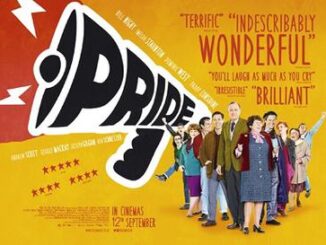
Hanna Da’Mes, Staff Writer |
On April 12 at 6 p.m., the Gender and Sexuality Resource Center (GSRC) presented the discussion, The “B” Word, an in-depth look on the stereotypes, struggles, and stigmas of bisexuality.
The discussion was led by Assistant Director of Student Life and Leadership of the GSRC, Emily Phelps, and English major and Women’s and Gender Studies minor, Katie Hebert. The two leaders of the discussion both identify as bisexual and have a strong desire to spread awareness of the often forgotten division of the LGBTQ+ acronym, so they came together to coordinate this event for students on campus. There were about 15 students who crowded into the small GSRC office and populated the comfortable array of lounging couches, chairs, and even rugs, eager to hear about the experiences of those around them.
The definition of bisexuality that Phelps and Hebert presented to the group was that it is being “emotionally, romantically, and/or sexually attracted to more than one sex, gender, or gender identity, though not necessarily simultaneously, in the same way, or to the same degree.” Phelps emphasized that sexuality is fluid and can change over time; just because someone did not always consider themselves to be bisexual does not make their bisexuality any less valid.
Katie described her personal distinction between bisexuality and pansexuality as a matter of gender playing a role for someone (bi) and gender not having a big part (pan). Emily added that she is attracted to feminine women and masculine men, with a preference for men. She expressed the importance of asking people what bisexuality means to them, should they be willing to share, as it can vary a great deal from one person to the next.
The two then showed a Buzzfeed video, “Things Bisexual People are Tired of Hearing,” which showcased men, women, and non-binary people telling viewers exactly that. Phrases bisexual people hear that are potentially harmful or just plain annoying include, “It’s just a phase,” “You haven’t decided yet,” and “You’re gay but won’t admit it.” The people in the video explained how detrimental these preconceived notions about bisexuality are, and how they are societally based in biphobia – the hatred or discrimination towards those who identify as bisexual. One girl explained her reasons for identifying as bisexual: “I feel like I have to cut off a part of myself to say ‘I’m straight’ or ‘I’m a lesbian.’”
Katie introduced the topic of biphobia by showing clips from an episode of the new TV show, “Grownish.” In the show, one of the supporting characters, Nomi, openly identifies as bisexual. At the time Nomi is seeing a girl (who happens to be a lesbian), and when she explains to this girl that she is bi, the girl doesn’t want to be with her anymore. Nomi complains that the girl is biphobic because she doesn’t want to be with a bisexual woman. However, when Nomi starts dating a boy and he tells her that he is also bisexual, she breaks up with him because she is uncomfortable with the idea. Katie explained that this is pretty common in the LGBTQ+ community. Biphobia can come from heterosexuals, lesbians, gays, and even bisexuals.
Emily Phelps brings up the point that bisexuality can often be harsher in society for men because of the double standard that exists. Women who identify as bisexual are generally more accepted, but it is a double edged sword, because bisexual women are only more accepted because they are objectified based on their sexuality. Men, on the other hand, are seen as less masculine if they are interested in other men, whether or not they are also attracted to women.
Emily and Katie then handed out sheets of paper to the entire group. On the paper was a list of around 50 names, all of which were celebrities with seemingly no connection. They told the group to circle every name that they thought might identify as bisexual. The list included Pink, Madonna, Sophocles, Shakespeare, Vanessa Carlton, among others. After some people shared who they had written down, Emily revealed that everyone on the list had come out as bisexual (except for a few, such as Shakespeare and Sophocles, who were on the list as a result of research and speculation). They concluded by emphasizing how bisexual representation in the media is important because it aids in the normalization of the sexual identity that is so often forgotten about.
For more information on upcoming events hosted by the GSRC, follow their Facebook page: SUNY Oneonta GSRC.

Leave a Reply